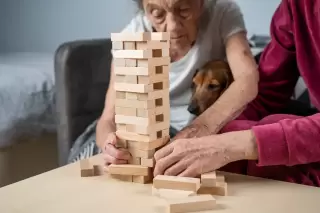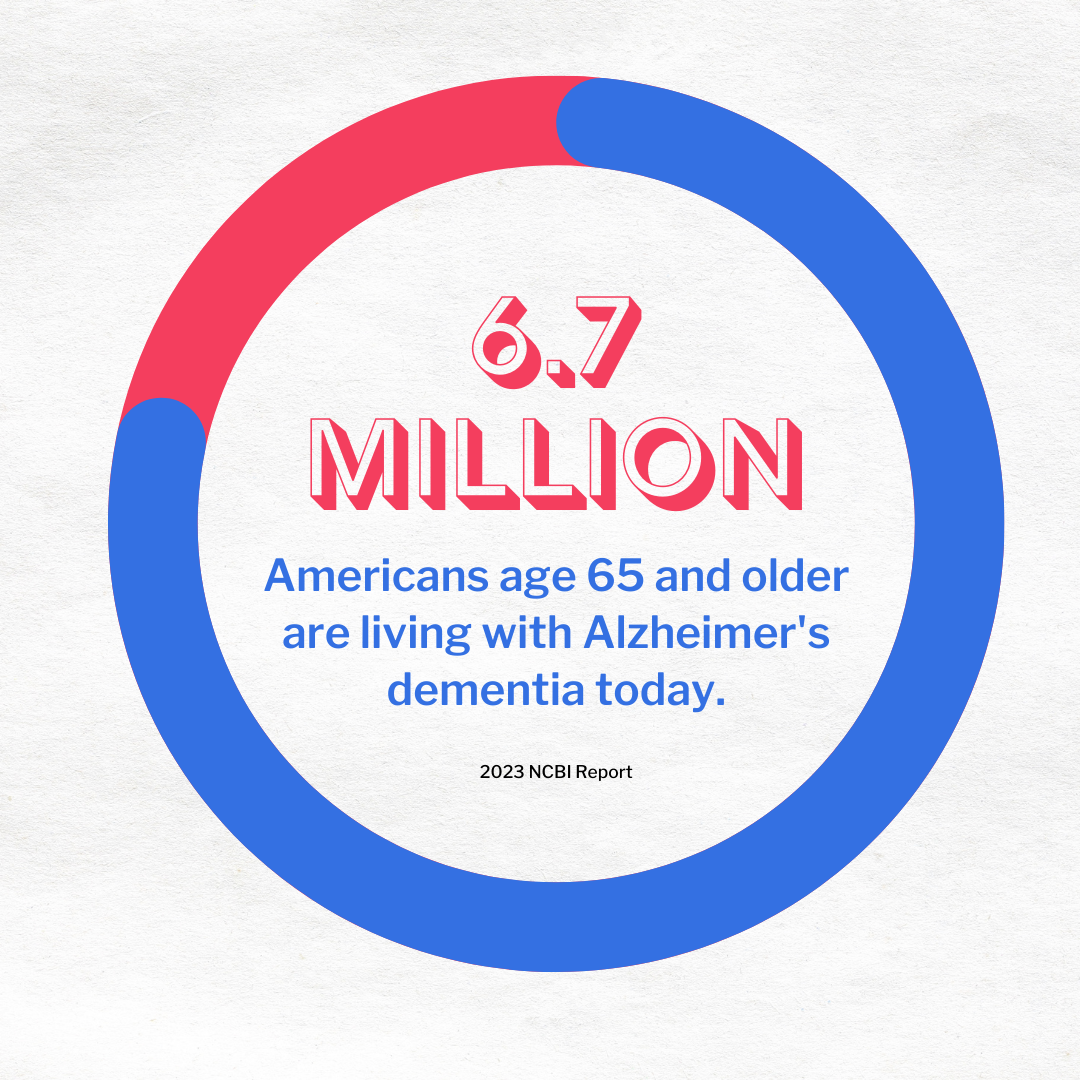Blog
How to communicate better when a loved one has dementia
Caregiving for your parent or spouse becomes much tougher when they have dementia. Here are five practical ways to communicate better with them during this stressful time.

Nobody prepares you for the challenges you face when your wife has dementia.
She can’t remember where she kept her things, communicates in confusion, suffers from bouts of stinging mood swings, and sometimes, even aggression. She doesn’t seem like herself anymore, and you desperately ache for the days when things were better and happier. Yet, you know you have to step up and care for her….to make sure she’s alright. Distorted communication, impulsive retorts, and unpredictable anger make things excruciatingly hard, especially when you’re dealing with everything alone. According to NCBI, an estimated 6.7 million Americans aged 65 and older are living with Alzheimer's dementia today. This painful condition severely complicates caregiving, as they experience progressive memory loss, stop expressing themselves clearly, start losing their sense of direction, sense of money, and even face hallucinations. The patient often repeats questions, loses interest and enthusiasm in daily activities, and may even become apathetic, as the National Institute Of Aging mentions in this report.
According to NCBI, an estimated 6.7 million Americans aged 65 and older are living with Alzheimer's dementia today. This painful condition severely complicates caregiving, as they experience progressive memory loss, stop expressing themselves clearly, start losing their sense of direction, sense of money, and even face hallucinations. The patient often repeats questions, loses interest and enthusiasm in daily activities, and may even become apathetic, as the National Institute Of Aging mentions in this report. When your loved one slowly loses their ability to speak properly and can’t communicate their needs, it becomes extremely frustrating to understand how to do the right thing. Bearing that they cannot process information accurately and quickly, you must be extra careful about what you say and, most importantly, how you say it.
When your loved one slowly loses their ability to speak properly and can’t communicate their needs, it becomes extremely frustrating to understand how to do the right thing. Bearing that they cannot process information accurately and quickly, you must be extra careful about what you say and, most importantly, how you say it.
Set a positive tone to the interaction
You need to cultivate a positive attitude while talking to them. Your actions and body language must be non-alarming or triggering. Try humor, sharing relatable incidents, or talking about the good old days. Your physical touch, facial expressions, and voice need to be affectionate and soothing.
 Reduce the number of distractions
Reduce the number of distractions
If you’re trying to communicate something important, you should get their full attention first. Move to quieter surroundings in the house, or simply shut the door, draw the curtains, and turn off the TV for a more peaceful setting. Address your father by name during the conversation and maintain eye contact with him. Use touch gently to make him feel comfortable.
Listen gently
When your loved one speaks, listen with not just your ears but also your heart. Make it your most profound intention to make them feel safe. If conversing with them, try stating your message clearly and using smaller words and sentences. Be patient with their response if they’re struggling for words. During later stages of dementia, they might take a long time to respond or process what you’re saying. Give them the space to express themselves.

Break down tasks for them
Following multiple instructions and intricate tasks is a giant challenge for someone with dementia. They need simple instructions and easy-to-follow roadmaps for their regular chores. Avoid abbreviations, pronouns, and multi-pronged questions. Use visual cues and politely encourage them to do what’s easy. As a loving gesture, you can also take out the time to appreciate them for their efforts.

Pause, redirect, and restart the conversation whenever necessary
Living with dementia is harrowing for your mother, so you must pause or redirect the conversation when she becomes unexpectedly jittery, aggressive, or uneasy. Nourish her with comfort and support, such as - calming affirmations, hugging, touching, holding hands, and softly rubbing her arms when triggered or hurt. You can redirect her energy by saying, “I understand you’re upset. I’m sorry. Would you like a hot cup of tea?”
Find the right support
Caregiving for a family member alone is difficult, often with little respite and relaxation. Managing everything with zero support will eventually cause frustration, disappointment, and might even result in burnout. Hire the most awesome and reliable non-medical companions, right at home, in Connecticut. At Best Life Caregivers, our excellent staff takes care of your spouse or parent, so you can live without the stress of caregiving. Once you choose us, you no longer have to worry about your loved one.
Contact our team today, and we’ll reach out to you as soon as possible!
Get the help and care you need
Sign up to receive caregiver advice and support articles
We care about the protection of your data. Read our Privacy Policy.
